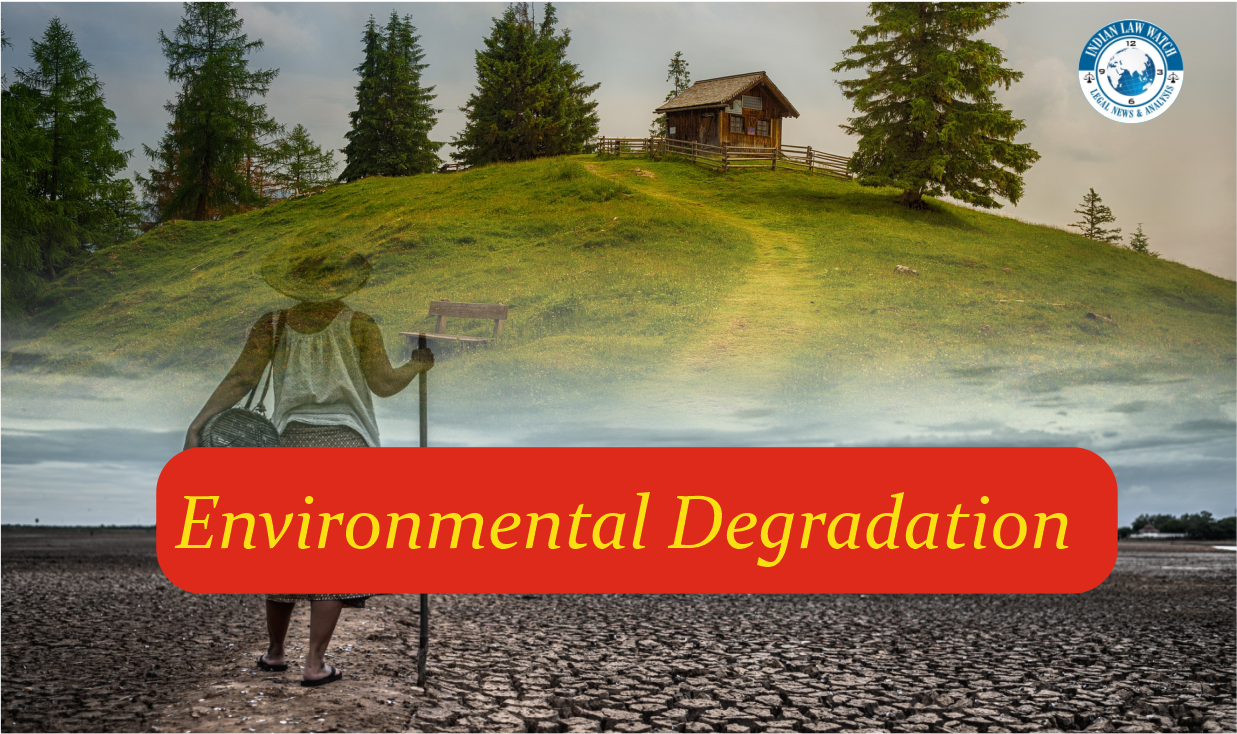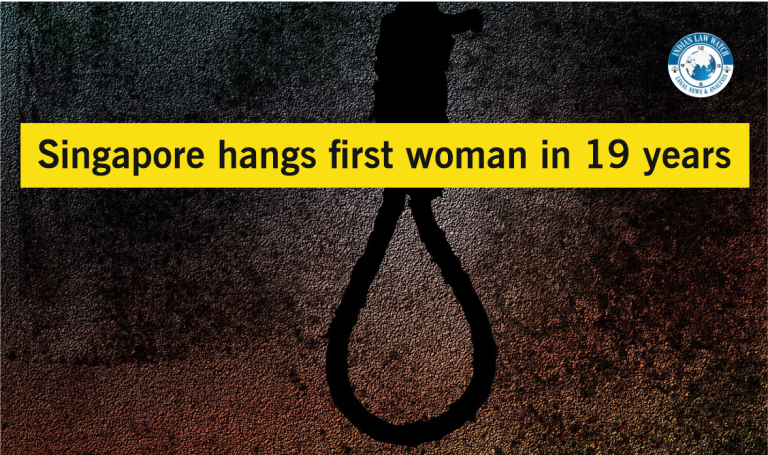
Environmental Concerns
‘The Queen of Hills’ defined mystic charm of Mussoorie, now is struggling to stand up to its title. This concern was raised before the Uttarakhand High Court bench by the Petitioner. The residents of Mussoorie have right to a clean and healthy environment violated due to the failure of various authorities to comply with the provisions of the environmental laws and even the society to give back to nature. The Constitutional obligations under Article 243W need to be complied by every state. The high court has issued notice in the matter being argued by Adv. Akash Vashishta. The public trust doctrine laid by the Hon’ble Supreme Court in M. C Mehta v. Kamal Nath (1997) 1 SCC 388 states there is implied affirmation of state power to use public property for public purposes. The various issues raised below in the PIL require enforcement of doctrine public trust coupled with inter-generational equity and polluter must pay principle.
Issues raised before Court
The Petitioner who is also an Advocate, Akash Vashishtha, apprised the court of the following issues. The source of concern is from growing tourism with non-sustainable and mindless commercialization.

80% of Sewage Untreated
As per record only 244 hotels which have been granted Lodging Licenses. Mussoorie has however more than 800-900 hotels and commercial accommodations.
The commercial accommodations are operating in Mussoorie without the necessary Consents to Establish and Operate under Section 25 of the Water (Prevention and Control of Pollution) Act, 1974 so they continue to discharge their sewage/wastewater and effluents into the channels, storm water drains and open land. There is concern about the large quantities of sewage water being discharged in open or in storm water drains in Mussoorie.
The Hon’ble Supreme Court in Enviro- Legal Action vs. Union of India J.T. 1996 (2) 196 articulated The “Polluter Pays” principle as interpreted by this Court means that the absolute liability for harm to the environment extends not only to compensate the victims of pollution but also the cost of restoring the environmental degradation. Remediation of the damaged environment is part of the process of “Sustainable Development” and as such polluter is liable to pay the cost to the individual sufferers as well as the cost of reversing the damaged ecology.” The Hon’ble supreme court has been vocal recently to declare that state governments will have to pay their citizens compensation if they fail to provide clean air and water.
The Petitioner is drawing attention of the court for directing closure of commercial accommodations whose Consents to operate or establish under the environmental laws have expired, violated under any established law. There is need for true and correct assessment of this gap. There is reinforcement to upgrade the capacity of STPs/ETPs; get Common effluent treatment plant (ETPs) installed and ensure that no sewage/wastewater or effluent is discharged in the open. Additionally, there is no information on the installed rainwater harvesting systems or have installed.
Complete Non-Compliances of Solid Waste Rules and regulations
The high tourist volumes, around 18 tonnes of solid wastes are generated from Mussoorie, daily. That the existing landfill/waste processing plant at Shishambara, Dehradun is simply inadequate to deal with the waste generated. There is no record maintained at Nagar Palika Parishad of the categories of waste separately, and has no mechanism outlined to deal with them as highlighted in the petition. There are no byelaws as provided under Rule 20(c). There are no attempts to prohibit tourists as well as the local people from littering wastes on the streets. The petition highlights need to spread awareness to the tourists as a measure of awareness and caution under Rule 20(d) of the Solid Waste Management Rules, 2016. There is suggestion for solid waste management charges to be collected from the tourists at the entry point of Mussoorie to make the solid waste management services sustainable.
Water Resources Dried Up, Severe Water Scarcity
Mussoorie has been witnessing severe water scarcity for last several years due to the drying up of the water resources therein. The 20 springs and nalas which meet the water needs of Mussoorie are in severe duress and have mostly dried up.
Fast Vanishing Green Cover, No Plantations
That the green cover of Mussoorie has vanished over the years and the Nagar Palika Parishad has failed to maintain even the existing green cover in Mussoorie. The petition highlights that in the last 11 years, since 2010, the Nagar Palika Parishad has beautified only one park. The Nagar Palika Parishad also does not have any nursery to raise saplings and maintain plant banks. To sustain horticulture works, the Nagar Palika Parishad does not possess or operate a single water tanker. Due to these factors the green cover of Mussoorie has alarmingly declined in the last few years and the land and landscapes therein are witnessing severe land degradation. The Hon’ble Supreme Court in AIR 1987 S.C. 359 in the matter of ‘Rural Litigation & Entitlement Kendra & Others vs State of U.P. and Others’ while expressing concerns about consequences of interference with the Ecology and Environment in the Doon valley.
Uncontrolled Number of Vehicles made to Enter Mussoorie, No Proper Records
The figures reveal that on an average day, in peak season, almost 1500-2000 four-wheelers, 100-150 taxis/commercial vehicles, 100 pick-up vans, 400-500 two-wheelers and about 40-50 trucks enter the Mall Road, Mussoorie, daily. The number of vehicles, thus entering Mussoorie, is alarmingly high, far greater than the capacity of the hill town to hold and park vehicles and absorb the resultant pollution therefrom. That no proper records of entry into and exit of vehicles from Mussoorie.
Alarming Number of Tourists Every Year and Rising
The Tourism Statistics compiled reveal Mussoorie witnessed a year-on-year rise in the number of tourists, barring some minor exceptions in the trend. The traffic jams and congestions have become a regular phenomenon in Mussoorie. The Right to Health has been recognized by the Hon’ble Supreme Court as a component of the Fundamental Right to Life under Article 21 in Virender Gaur v. State of Haryana (1995) SUPPL. (6) SCR 78. Article 48A was inserted in the Constitution in Part IV stipulating that the State shall endeavor to protect and improve the environment and to safeguard the forest and wildlife of the country. Article 51A provides that it shall be the duty of every citizen of India to protect and improve the natural environment. Article 47 which provides that it shall be the duty of the State to raise the level of nutrition and the standard of living and to improve public health is also relevant in this connection.
The Uttarakhand Pollution Control Board has failed to install a single Air Quality Monitoring Station, in Mussoorie, till date, under the provisions of the Air (Prevention and Control of Pollution) Act, 1981.That the Uttarakhand Pollution Control Board has further failed to conduct regular sampling and analysis of the groundwater (water from streams, rivers as well as other geological sources) in Mussoorie, under the provisions of the Water (Prevention and Control of Pollution) Act, 1974.
Carrying Capacity
The Carrying Capacity of Mussoorie need afresh assessment based on the existing physical conditions of the town by a reputed expert agency or individual and regulate the number of tourists entering Mussoorie after thoroughly frisking them. The Hon’ble Supreme Court India also in Civil Appeal No. 2435 of 2019 Keystone Realtors Pvt. Ltd. vs Shri Anil V Tharthare & Ors. vide judgment dated 03.12.2019 held that EIA Notification exists to ensure that where a project is expanded in size, the environmental impact on the surrounding area is evaluated holistically considering all the relevant factors including air and water availability and pollution, management of solid and wet waste and the urban carrying capacity of the area. The prayer by petitioner is that Mussoorie-Dehradun Development Authority should not approve any new layout plan of any residential or commercial group in and around Mussoorie and put sanction of all existing plans on hold until a fresh Carrying Capacity is determined.
Milestone judgments of Polluter must Pay and Inter-generational equity.
The Polluter Pays Principle as elaborated by the Hon’ble Supreme Court in the matter of Vellore Citizens Welfare Forum v. Union of India and others (AIR 1996 SC 2715), those who are responsible for polluting the air and water in Mussoorie ought to be made liable to pay damages:
“We are, however, of the view that the “The Precautionary Principle” and “the Polluter Pays” principle are essential features of “Sustainable Development”. The Precautionary Principle in the context of municipal law – means:
(i) Environment measures – by the State Government and the statutory Authorities must anticipate, prevent’ and attack the causes of environmental degradation.
(ii) Where there are threats of serious and irreversible damage lack of scientific certainly should not be used as the reason for postponing, measures to prevent environmental depredation.
(iii)The “Onus of proof” is on the actor or the developer/industrial to show that his action is environmentally benign.
The principle of ‘inter-generational equity’ propounded by the Hon’ble Supreme Court in A. P Pollution Control Board v. Prof. M. V Nayadu (1999) 2 SCC 718:
“The duty of the present generation towards posterity: Principle of Inter-generational Equity: Rights of the Future against the Present:
The 1972 Stockholm Declaration refers to it in principles 1 and 2. In this context, the environment is viewed more as a resource basis for the survival of the present and future generations.
“Principle 1 states: Man has the fundamental right to freedom, equality and adequate conditions of life, in an environment of quality that permits a life of dignity and well-being, and he bears a solemn responsibility to protect and improve the environment for present and future generations……..”
Principle 2: The natural resources of the earth, including the air, water, lands, flora and fauna and especially representative samples of natural ecosystems, must be safeguarded for the benefit of present and future generations through careful planning or management, as appropriate.”
The court is hearing the matter currently and the next date of hearing is September 5th.





